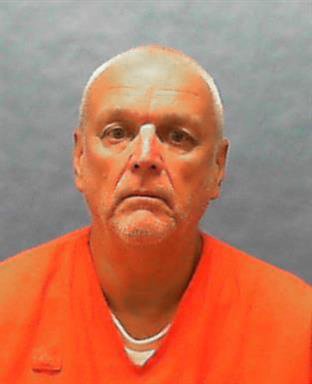TALLAHASSEE, Fla. (OSV News) — “There is a way to punish without ending another human life: life-long incarceration without the possibility of parole,” the Florida Conference of Catholic Bishops wrote to Gov. Ron DeSantis, urging the state’s Catholic governor to stay the scheduled Oct. 14 execution of Samuel “Sammy” Smithers.
“Every human life, given by God, is sacred. The death penalty is unnecessary,” they said in a letter signed by Michael Sheedy, the conference’s executive director, and released Oct. 8.
Smithers, now 72, was convicted and sentenced to death in 1996 for the murders of Christy Cowan, 31, and Denise Roach, 24.
The bishops mourned the tragic deaths of Cowan and Roach and the suffering of their loved ones, yet urged the Florida governor to spare Smithers’ life and commute his sentence to life imprisonment without parole.
“Mr. Smithers’ crimes were heinous, and it is right that the state should punish them severely,” said the letter to DeSantis. “Nevertheless, even as we pray for the repose of the souls of the victims and for the consolation of their survivors, we ask that you spare Mr. Smithers’ life.”
Vigil and petitions to stop Smithers’ execution
Before Smithers’ scheduled 5 p.m. execution at Florida State Prison near Starke, Catholics and others planned to gather across from the prison and in other locations across Florida to pray for him, for the families of his victims and for DeSantis as he considers the request to stay the execution.
Floridians for Alternatives to the Death Penalty said it planned to deliver thousands of petition signatures to DeSantis the morning of Smithers’ scheduled execution calling on him to stop what will be “the 14th state-sanctioned murder to take place in our state this year — more than ever in history.”
A sentence of life imprisonment without parole “is a severe yet more humane punishment that ensures societal safety, offers finality to court processes much more quickly than a death sentence, and allows the guilty the possibility of repentance,” the bishops said in their letter, dated Oct. 1.

“We appeal to you that it is possible both to achieve the purposes of punishment and to exercise mercy,” they told DeSantis. “We can entrust the final judgment of every individual to God. We pray for the repose of the souls of Ms. Cowan and Ms. Roach and for the consolation of their loved ones. We pray for you, too, as you consider this request.”
Large number of elderly on Florida’s death row
Smithers, one of the oldest people the state of Florida has sought to execute, has documented brain damage and shows signs of dementia, according to FADP. The group has said the father of Christie Cowan pleaded with the court not to sentence Smithers to death.
“He said his daughter would not have wanted violence done in her name, and warned that an execution would cause him ‘the wors(t) and most brutal possible kind of closure,'” FADP reported. “Mr. Cowan deserves healing, not years of retraumatization through an execution process he did not want.”
Smithers is among many elderly on Florida’s death row. There are 257 people on Florida’s death row, and of that number 63 inmates will turn 65 or older in 2025. Within that group, along with Smithers, 28 other inmates are ages 72 or older.
In 2025 alone, the bishops have written the governor 13 times — each time met with silence — asking him to choose life over a sentence of death. Sheedy said no matter how frustrating, this is not a time to be silent against the death penalty.
“The escalating pace of executions in our state weighs heavily on us, and the governor’s silence in response to our call for dialogue is deeply disappointing,” Sheedy told Florida Catholic Media in an email. “Still, we remain steadfast in seeking a meeting with Governor DeSantis, urging him to pause the signing of death warrants. As we have before each execution, we will continue to write to the governor, appealing for mercy and asking that each death sentence be commuted to life in prison without parole.”
Catholic teaching informs death penalty stance
The Catholic Church’s official magisterium opposes the use of capital punishment as inconsistent with the inherent sanctity of human life, and advocates for the practice’s abolition worldwide.
The late Pope Francis revised the Catechism of the Catholic Church in 2018 to clarify the church’s teaching that capital punishment is morally “inadmissible” in the modern world and that the church works with determination for its abolishment worldwide.
In his 2020 encyclical “Fratelli Tutti,” Pope Francis addressed the moral problem of capital punishment by citing St. John Paul II, writing that his predecessor “stated clearly and firmly that the death penalty is inadequate from a moral standpoint and no longer necessary from that of penal justice.”
About a decade prior to becoming Pope Leo XIV earlier this year, then-Bishop Robert Prevost also raised his voice in support of abolishing capital punishment, writing in a March 5, 2015, post on X, then known as Twitter, “It’s time to end the death penalty.”
Contributing to this OSV News story was Jean Gonzalez, projects editor for Florida Catholic Media.




